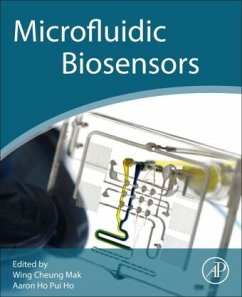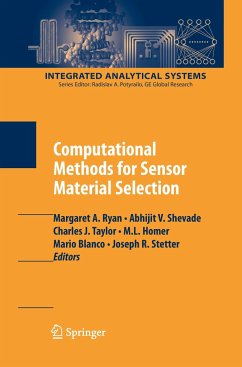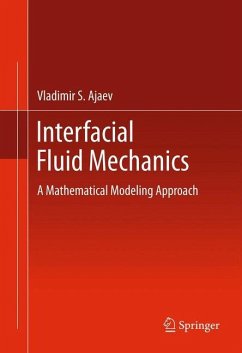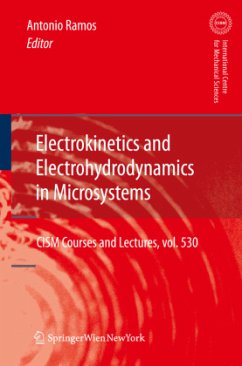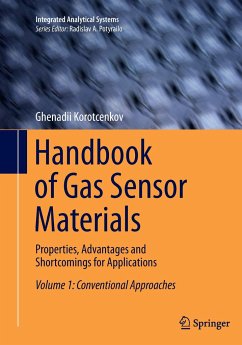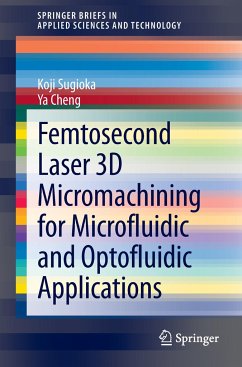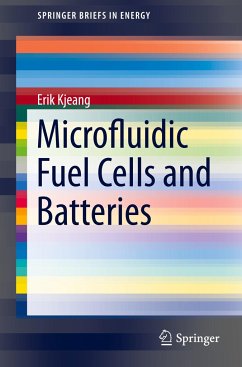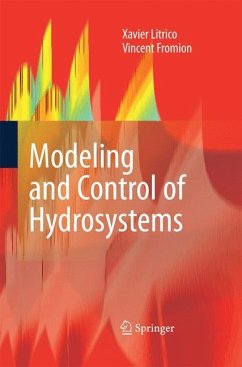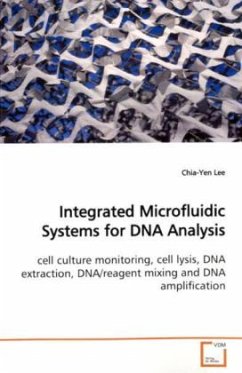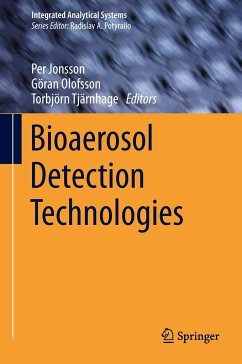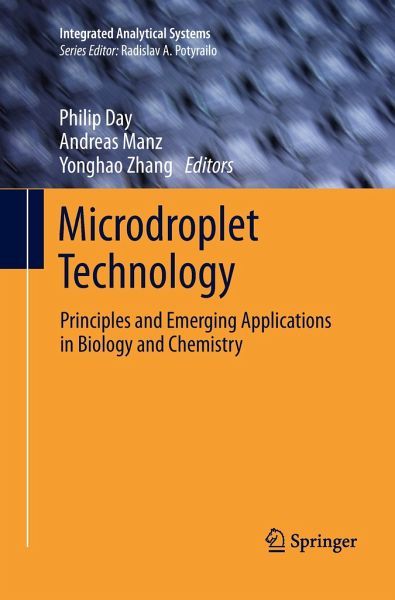
Microdroplet Technology
Principles and Emerging Applications in Biology and Chemistry
Herausgegeben: Day, Philip; Manz, Andreas; Zhang, Yonghao
Versandkostenfrei!
Versandfertig in 6-10 Tagen
76,99 €
inkl. MwSt.

PAYBACK Punkte
38 °P sammeln!
Microdroplet technology has recently emerged to provide new and diverse applications via microfluidic functionality, especially in various areas of biology and chemistry. This book, then, gives an overview of the principle components and wide-ranging applications for state-of-the-art of droplet-based microfluidics. Chapter authors are internationally-leading researchers from chemistry, biology, physics and engineering that present various key aspects of micrdroplet technology -- fundamental flow physics, methodology and components for flow control, applications in biology and chemistry, and a ...
Microdroplet technology has recently emerged to provide new and diverse applications via microfluidic functionality, especially in various areas of biology and chemistry. This book, then, gives an overview of the principle components and wide-ranging applications for state-of-the-art of droplet-based microfluidics. Chapter authors are internationally-leading researchers from chemistry, biology, physics and engineering that present various key aspects of micrdroplet technology -- fundamental flow physics, methodology and components for flow control, applications in biology and chemistry, and a discussion of future perspectives. This book acts as a reference for academics, post-graduate students, and researcher wishing to deepen their understand of microfluidics and introduce optimal design and operation of new droplet-based microfluidic devices for more comprehensive analyte assessments.






